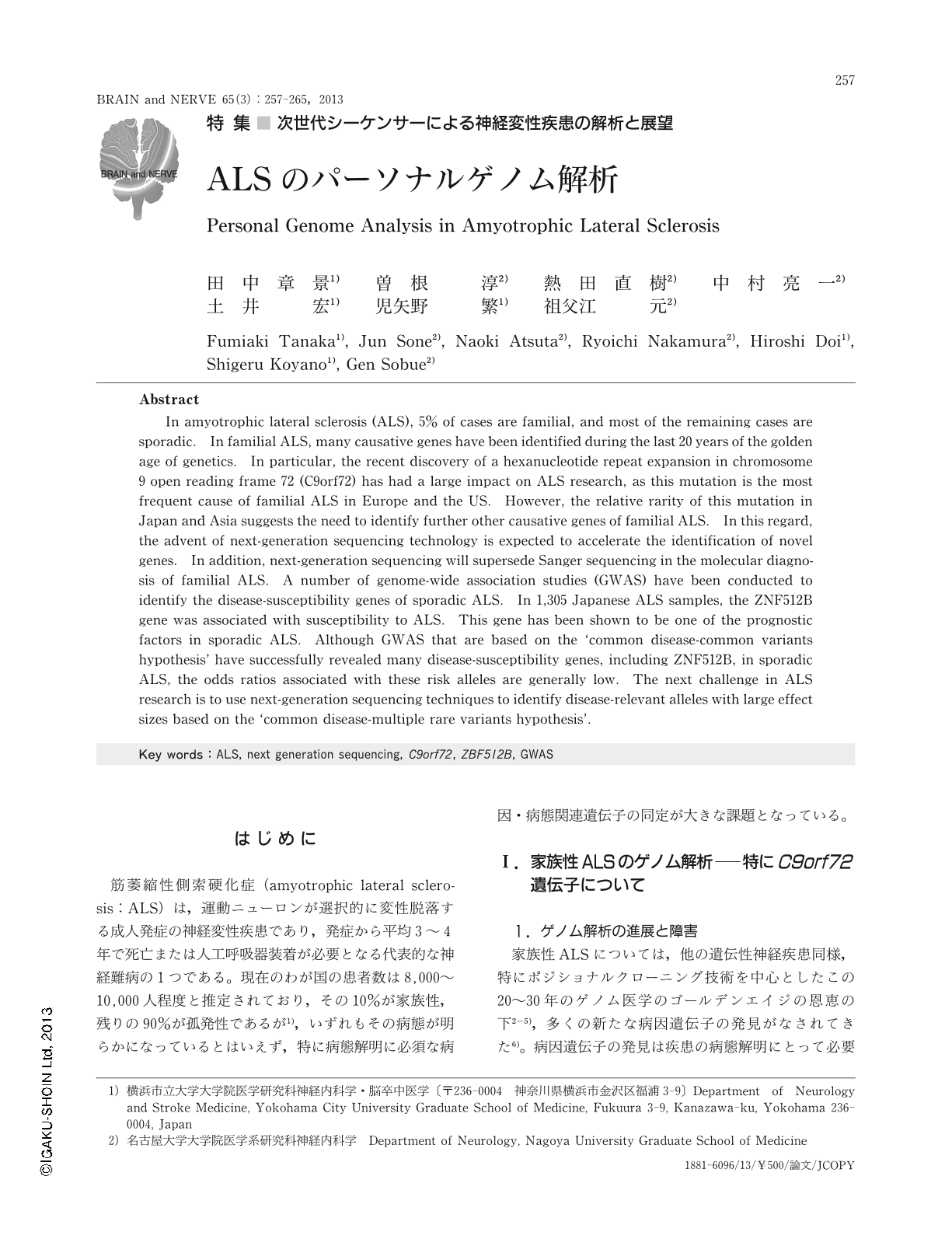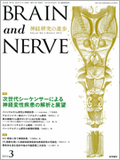Japanese
English
- 有料閲覧
- Abstract 文献概要
- 1ページ目 Look Inside
- 参考文献 Reference
はじめに
筋萎縮性側索硬化症(amyotrophic lateral sclerosis:ALS)は,運動ニューロンが選択的に変性脱落する成人発症の神経変性疾患であり,発症から平均3~4年で死亡または人工呼吸器装着が必要となる代表的な神経難病の1つである。現在のわが国の患者数は8,000~10,000人程度と推定されており,その10%が家族性,残りの90%が孤発性であるが1),いずれもその病態が明らかになっているとはいえず,特に病態解明に必須な病因・病態関連遺伝子の同定が大きな課題となっている。
Abstract
In amyotrophic lateral sclerosis (ALS), 5% of cases are familial, and most of the remaining cases are sporadic. In familial ALS, many causative genes have been identified during the last 20 years of the golden age of genetics. In particular, the recent discovery of a hexanucleotide repeat expansion in chromosome 9 open reading frame 72 (C9orf72) has had a large impact on ALS research, as this mutation is the most frequent cause of familial ALS in Europe and the US. However, the relative rarity of this mutation in Japan and Asia suggests the need to identify further other causative genes of familial ALS. In this regard, the advent of next-generation sequencing technology is expected to accelerate the identification of novel genes. In addition, next-generation sequencing will supersede Sanger sequencing in the molecular diagnosis of familial ALS. A number of genome-wide association studies (GWAS) have been conducted to identify the disease-susceptibility genes of sporadic ALS. In 1,305 Japanese ALS samples, the ZNF512B gene was associated with susceptibility to ALS. This gene has been shown to be one of the prognostic factors in sporadic ALS. Although GWAS that are based on the 'common disease-common variants hypothesis' have successfully revealed many disease-susceptibility genes, including ZNF512B, in sporadic ALS, the odds ratios associated with these risk alleles are generally low. The next challenge in ALS research is to use next-generation sequencing techniques to identify disease-relevant alleles with large effect sizes based on the 'common disease-multiple rare variants hypothesis'.

Copyright © 2013, Igaku-Shoin Ltd. All rights reserved.


